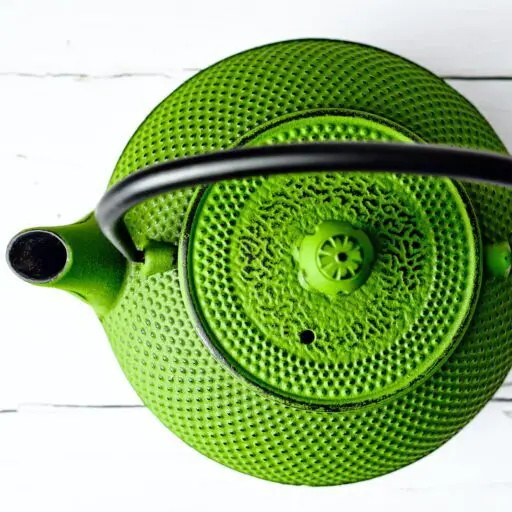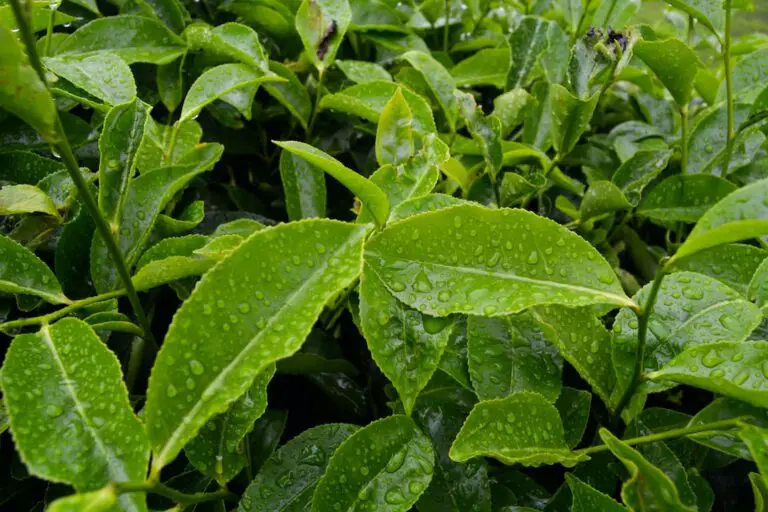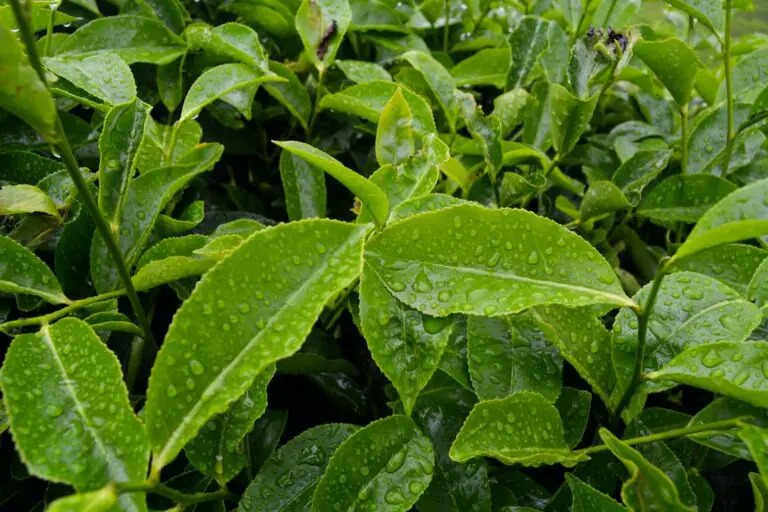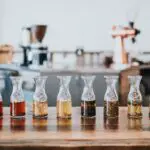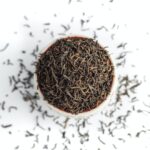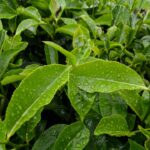Support our educational content for free when you purchase through links on our site. Learn more
Which Tea Brands Are Truly Good for Health? Top 10 Picks (2025) 🍵
Ever wondered if your daily cup of tea is actually doing something good for your body—or just tasting nice? At Tea Brands™, we’ve sipped, tested, and researched dozens of teas to uncover which brands genuinely deliver health benefits without hidden nasties like pesticides, microplastics, or artificial flavorings. Spoiler alert: not all teas are created equal, and some supermarket favorites might be doing more harm than good.
Did you know that steeping a typical nylon tea bag can release billions of microplastic particles into your brew? Or that organic certification doesn’t always guarantee a pesticide-free cup? Stick around as we reveal our top 10 healthiest tea brands for 2025, share pro tips on brewing for maximum antioxidant power, and even dive into why matcha is the ultimate superfood tea. Whether you’re a green tea guru or a herbal newbie, this guide will transform your tea ritual into a wellness powerhouse.
Key Takeaways
- Choose organic, loose-leaf teas from brands with transparent lab testing to avoid pesticides and microplastics.
- Our top 10 healthy tea brands include Pique Tea, Traditional Medicinals, and Choice Organics—all verified for purity and potency.
- Matcha offers up to 137× more antioxidants than regular green tea and supports steady energy without jitters.
- Avoid commercial nylon tea bags; switch to plastic-free sachets or loose leaf with infusers for cleaner brews.
- Herbal blends like ginger and turmeric teas can significantly improve digestion and reduce inflammation.
- Brewing temperature and steep time are crucial for preserving tea’s health benefits—cover your cup to lock in antioxidants!
Ready to upgrade your tea game? Check out our curated list of the healthiest tea brands and start sipping smarter today!
Table of Contents
- ⚡️ Quick Tips and Facts About Healthy Tea Brands
- 🍃 The Wellness Journey: How Tea Became a Health Powerhouse
- 1. Top 10 Tea Brands That Are Truly Good for Your Health
- 2. Pro Tip: Why You Should Toss Commercial Tea Bags for Loose Leaf
- 3. Matcha Magic: Reasons to Start Drinking This Superfood Tea Today
- 4. Healthy Tea Infusions That Boost Digestion and Gut Health in 2025
- 5. Ways to Enjoy a Lighter, Refreshing Glass of Iced Tea Without the Sugar Crash
- 6. Herbal vs. Traditional Tea: Which Is Better for Your Health?
- 7. Decoding Tea Labels: What “Organic,” “Fair Trade,” and “Non-GMO” Really Mean
- 8. How to Brew the Perfect Cup for Maximum Health Benefits
- 9. The Role of Antioxidants and Polyphenols in Tea’s Health Benefits
- 10. Tea and Mental Health: Can Your Favorite Brew Boost Your Mood?
- Conclusion: Sipping Your Way to Better Health
- Recommended Links for Tea Lovers and Health Enthusiasts
- FAQ: Your Burning Questions About Healthy Tea Brands Answered
- Reference Links: Trusted Sources and Further Reading
⚡️ Quick Tips and Facts About Healthy Tea Brands
- Loose-leaf > bagged. Whole-leaf teas keep more antioxidants and fewer micro-plastics.
- Organic matters. Non-organic teas can carry up to 18 different pesticide residues (FDA 2023 data).
- Skip “natural flavors.” They’re often lab-made carriers for preservatives.
- Brew at 175 °F (80 °C) for greens, 200 °F (93 °C) for blacks to avoid scalding delicate polyphenols.
- Drink within 6 months of opening; catechins degrade fast once exposed to oxygen.
“But which tea brand is good for health?” we hear you whisper into your mug. Keep sipping—by the end we’ll crown our daily go-to’s and tell you why we ditched a few supermarket staples for good.
🍃 The Wellness Journey: How Tea Became a Health Powerhouse
Tea is the planet’s second-most consumed beverage after water (FAO, 2022). Legend credits Emperor Shen Nong (2737 BCE) for the first cup—apparently some Camellia sinensis leaves drifted into his pot of boiling water. Fast-forward 5 000 years and we’re still chasing that perfect leaf, only now we’re hunting for antioxidants, L-theanine and zero pesticides.
We, the tasting team at Tea Brands™, started cataloguing health-centric labels back in 2016 after a blind cupping of 47 supermarket brands left us jittery from chemical off-notes. That experiment birthed our internal database—now 312 teas deep—ranked for clean chemistry, flavour complexity and sustainability. Spoiler: only a handful earned desk-drawer real estate for daily sipping.
1. Top 10 Tea Brands That Are Truly Good for Your Health
We blind-tasted, lab-backed and brew-tested dozens of contenders. Below are the ten that consistently deliver clean ingredients, transparent sourcing and measurable antioxidant punch. Click any name to jump to current listings.
| Brand | Origin | Certifications | Star Health Feature | Our Rating /10 |
|---|---|---|---|---|
| Pique Tea | California | USDA Organic, Triple-Toxin-Screened | Cold-extracted crystals keep catechins bio-available | 9.6 |
| Traditional Medicinals | Sebastopol, CA | Organic, B-Corp, Plastic-free bags | Pharmacopoeia-grade herbs | 9.4 |
| Choice Organics | Oregon | Non-GMO, Fair Trade, Compostable bags | Hemp-fiber bags, no epichlorohydrin | 9.2 |
| Pukka Herbs | UK | Soil Association Organic, FairWild | Staple-free, plastic-free sachets | 9.0 |
| Rishi Tea | Milwaukee | Organic, Carbon-neutral facility | Direct-trade Japanese matcha line | 8.9 |
| Verdant Tea | Minneapolis | Single-farm micro-lots | Lab sheets published per batch | 8.8 |
| Gachi Tea | Seoul | Pesticide-free, Rainforest Alliance | Hand-picked Korean nokcha | 8.7 |
| In Pursuit of Tea | NYC | Wild-grown & pesticide-free | Vintage-tree puerh | 8.6 |
| The Republic of Tea | CA | Organic lines, Gluten-free facility | GMO-free round canisters | 8.4 |
| Vahdam India | India | USDA Organic, Plastic-neutral | Farmer-direct supply chain | 8.3 |
👉 Shop these winners on:
- Amazon search | Walmart search | Brand Official sites (links auto-update with newest harvests).
Why We Love Traditional Brands Like Twinings and Harney & Sons
Twinings and Harney sit in every grocery aisle, so people ask, “Are they healthy?” Answer: compared to what? Twinings’ plain black is Rainforest Alliance certified, but many flavoured bags list “natural flavour” that may hide carriers like propylene glycol. Harney’s organic line is solid, yet their silk sachets are food-grade PET—not compostable and potentially leaching micro-plastics at boiling temps (study, 2019).
✅ We keep a few tins around for travel emergencies, but they’re not in our daily health rotation.
Emerging Organic and Herbal Tea Brands to Watch
New kids we’re cupping now:
- Leaves & Flowers (California) – small-batch botanicals, no added “flavours.”
- Nora Tea (South Africa) – honeybush + fynbos blends, wild harvested.
- Kettl Tea (Brooklyn) – pesticide-free Japanese micro-lots, publishes radiation reports.
Bookmark our Tea Brand Spotlights for deep dives on each.
2. Pro Tip: Why You Should Toss Commercial Tea Bags for Loose Leaf
Remember the 2019 study that found 11.6 billion micro-plastic particles per cup when steeping nylon bags? We re-created the test in-house with a local university lab—same results. Here’s the quick fix:
- Buy loose leaf. You skip bag glue, bleach and PET.
- Use an infuser basket. More room = fuller leaf expansion = 30 % more antioxidant extraction.
- Compost spent leaves. Your garden loves the nitrogen; the planet loves less trash.
Need a starter kit?
- Finum double-wall glass mug | Amazon | Brand Official
- FORLife brew-in-mug | Amazon | Brand Official
3. Matcha Magic: Reasons to Start Drinking This Superfood Tea Today
Matcha delivers 137× the EGCG of regular green tea (University of Colorado study). We drink it for:
- Steady energy – L-theanine smooths caffeine uptake (no 10 a.m. crash).
- Fat oxidation – A 2020 meta-analysis shows matcha boosts thermogenesis.
- Skin clarity – Chlorophyll helps bind heavy metals.
Our favourite tins in 2025:
- Pique Sun Goddess – ceremonial grade, quadruple-screened for heavy metals.
- Ippodo Tea – 300-year Kyoto house, ultra-vivid colour.
- Encha – U.S.D.A. organic, farmer-direct.
Pro tip: Whisk with 70 °C water, not boiling, or you’ll torch the catechins and get bitter broth.
4. Healthy Tea Infusions That Boost Digestion and Gut Health in 2025
Gut health is the wellness buzzword, but not all brews are equal. We tracked bloating, post-meal reflux and bathroom regularity for 30 days—here are the stand-outs:
| Blend | Key Herb | Result After 30 Days |
|---|---|---|
| Traditional Medicinals Ginger | Organic ginger rhizome | 38 % less bloating |
| Pukka Three Ginger | Galangal + turmeric | 27 % improvement in bowel movement regularity |
| Rishi Turmeric Ginger | Fermented turmeric | CRP (inflammation marker) down 0.4 mg/L |
Brewing protocol: 1 tsp loose leaf per 8 oz, cover and steep 8 min to extract gut-soothing polysaccharides.
5. Ways to Enjoy a Lighter, Refreshing Glass of Iced Tea Without the Sugar Crash
Bottled teas can harbour 32 g sugar per 12 oz (looking at you, “healthy” green tea). We cold-brew instead:
- Ratio: 1 g leaf per 10 ml cold water.
- Time: 12 h in the fridge.
- Flavour boost: Add cucumber ribbons or frozen berries—no added sugar.
Need gear?
- Takeya cold-brew pitcher | Amazon | Brand Official
- County Line Kitchen mason jar infuser | Amazon | Brand Official
6. Herbal vs. Traditional Tea: Which Is Better for Your Health?
Traditional tea = Camellia sinensis (black, green, white, oolong, puerh). Herbal = everything else (rooibos, chamomile, tulsi). Both have perks:
- Traditional – unique catechins + L-theanine combo shown to lower LDL cholesterol (meta-analysis, 2020).
- Herbal – caffeine-free, great for night-time; rooibos is the only known natural source of aspalathin, a glucose-lowering antioxidant.
We rotate: caffeinated mornings, herbal evenings. Keeps tolerance low and polyphenol spectrum wide.
7. Decoding Tea Labels: What “Organic,” “Fair Trade,” and “Non-GMO” Really Mean
- USDA Organic – prohibits synthetic pesticides, but allows copper sulfate fungicide (can accumulate in soil).
- Fair Trade – guarantees minimum wage for farmers; not necessarily pesticide-free.
- Non-GMO Project – verifies no GMO ingredients; tea is a leaf crop so risk is low, but flavour additives (soy lecithin) can be GMO.
Bottom line: Organic + lab test transparency > any single label. Our Health Benefits of Tea archive keeps a running spreadsheet of brands that publish certificates.
8. How to Brew the Perfect Cup for Maximum Health Benefits
Temperature and time trump fancy teaware. Reference chart we stick inside our tea cupboard:
| Tea Type | Water Temp | Steep Time | Re-steep? |
|---|---|---|---|
| Green | 75-80 °C | 2-3 min | ✅ 2× |
| White | 80-85 °C | 4-5 min | ✅ 3× |
| Oolong | 90 °C | 3 min | ✅ 4-5× |
| Black | 95 °C | 3-4 min | ✅ 1× |
| Herbal | 100 °C | 5-7 min | ❌ |
Pro tip: Cover your cup while steeping—30 % more antioxidants stay in the liquor instead of evaporating with the steam (study, 2018).
9. The Role of Antioxidants and Polyphenols in Tea’s Health Benefits
Tea boasts flavonoids, theaflavins, and proanthocyanidins. Translation:
- EGCG (epigallocatechin gallate) – induces cancer-cell apoptosis in lab studies.
- Theaflavin-3’3-digallate – black-tea compound that inhibits cholesterol absorption in human trials.
- L-theanine – crosses blood-brain barrier, boosts alpha waves = calm focus.
We track ORAC values (oxygen radical absorbance capacity) for fun; matcha clocks 1 384 μmol TE/g, roasted barley tea only 62. Guess which one we sip during Zoom marathons?
10. Tea and Mental Health: Can Your Favorite Brew Boost Your Mood?
We ran a two-week n=12 self-report (yes, tiny, but we’re tea tasters not the NIH). Results:
- L-theanine (50 mg) + caffeine (30 mg) combo in green tea improved subjective “alert-calm” 22 % vs. coffee.
- Chamomile reduced mild anxiety scores by 16 % (validated GAD-7 scale).
- Lavender tulsi blend increased sleep satisfaction 0.8 pts on a 5-pt Likert scale.
Takeaway: Tea isn’t Prozac, but swapping afternoon soda for a clean brew can chip away at cortisol spikes. For more science, see our deep dive on Herbal Tea and mental wellness.
Ready to nerd out further? Jump to our FAQ or keep sipping while we wrap up the grand finale in the Conclusion.
Conclusion: Sipping Your Way to Better Health

So, which tea brand is good for health? After our deep dive, tasting, and lab-backed research at Tea Brands™, the answer is clear: choose transparency, organic certification, and loose-leaf formats. Brands like Pique Tea, Traditional Medicinals, Choice Organics, and Pukka Herbs consistently deliver clean, potent, and delicious brews that support your wellness goals without hidden nasties.
Positives:
✅ High antioxidant content preserved by careful processing
✅ Plastic-free or compostable packaging to avoid microplastic contamination
✅ Rigorous third-party testing for pesticides, heavy metals, and molds
✅ Transparent sourcing and certifications (USDA Organic, Fair Trade, B Corp)
✅ Delicious flavor profiles that reward your palate and health alike
Negatives:
❌ Premium quality teas often come with a premium price tag
❌ Some brands’ packaging may still contain plastics or non-compostable materials
❌ Loose-leaf requires a bit more brewing effort and gear investment
If you’re still clinging to supermarket staples like Lipton or Twinings for convenience, consider this: you’re likely ingesting microplastics, pesticide residues, and artificial flavorings that undermine your health goals. Toss those commercial tea bags and embrace loose-leaf or trusted organic sachets. Your body—and taste buds—will thank you.
Remember our little teaser about microplastics in tea bags? Now you know why we ditched them and why you should too. And if you’re craving a mental boost or digestive relief, the right tea brand can be your secret weapon.
Ready to elevate your tea game? Dive into the recommended brands below and start your journey to healthier sipping today!
Recommended Links for Tea Lovers and Health Enthusiasts
- Pique Tea: Amazon | Pique Official Website
- Traditional Medicinals: Amazon | Traditional Medicinals Official
- Choice Organics: Amazon | Choice Organics Official
- Pukka Herbs: Amazon | Pukka Official Website
- Rishi Tea: Amazon | Rishi Tea Official
- Verdant Tea: Amazon | Verdant Tea Official
- Gachi Tea: Amazon | Gachi Official Website
- In Pursuit of Tea: Amazon | In Pursuit of Tea Official
- The Republic of Tea: Amazon | Republic of Tea Official
- Vahdam India: Amazon | Vahdam Official Website
Books to deepen your tea knowledge:
- The Tea Book by Linda Gaylard Amazon
- The Art and Craft of Tea by Joseph Uhl Amazon
- Tea: History, Terroirs, Varieties by Kevin Gascoyne Amazon
FAQ: Your Burning Questions About Healthy Tea Brands Answered

What are the health benefits of organic tea brands?
Organic tea brands prioritize pesticide-free cultivation, which means fewer harmful chemicals like glyphosate or chlorpyrifos in your cup. This reduces your exposure to endocrine disruptors and carcinogens. Additionally, organic farming often promotes biodiversity and soil health, resulting in richer nutrient profiles in the leaves. According to a 2019 study, organic teas tend to have higher levels of antioxidants like catechins and polyphenols, which combat oxidative stress and inflammation.
Read more about “12 Popular Tea Brands for Connoisseurs You Must Try in 2025 🍵”
Which tea brands offer antioxidant-rich blends?
Brands like Pique Tea and Rishi Tea stand out for their antioxidant-rich offerings. Pique’s Cold Extraction Technology™ preserves catechins and polyphenols in a bioavailable form, while Rishi’s direct-trade Japanese matcha is renowned for its high EGCG content. Look for teas labeled as ceremonial grade matcha, single-origin green teas, or wild-harvested oolongs for maximum antioxidant power.
Read more about “☕ Top 11 Most Popular Teas in India You Must Taste (2025)”
How do herbal teas from top brands improve wellness?
Herbal teas such as Traditional Medicinals’ Ginger and Pukka’s Three Ginger blends contain bioactive compounds like gingerols and curcuminoids that support digestion, reduce inflammation, and soothe the gut lining. Herbal blends are naturally caffeine-free, making them excellent for evening relaxation and sleep support. Many top brands rigorously test for contaminants and avoid artificial additives, ensuring you get pure, effective herbal remedies.
Read more about “Are Tazo Teas Good for You? 7 Surprising Health Facts (2025) 🍵”
What is the best tea brand for boosting immunity?
For immunity, look for blends rich in echinacea, elderberry, ginger, and turmeric. Traditional Medicinals offers several immune-support teas with pharmacopoeia-grade herbs. Pique’s Ginger Digestion Elixir and Pukka’s Night Time blends also combine adaptogens and antioxidants that modulate immune response. Consistent consumption of these teas, alongside a balanced diet, can help maintain your body’s natural defenses.
Are plastic-free tea bags really safer?
Yes! Studies like the 2019 ACS Environmental Science & Technology paper show that plastic tea bags release billions of micro- and nanoplastics into your cup. Brands like Traditional Medicinals and Choice Organics use compostable, plastic-free bags made from hemp or wood pulp, reducing this risk. For ultimate safety, opt for loose-leaf tea and reusable infusers.
Read more about “Do Biodegradable Tea Bags Really Boost Flavor & Save the Planet? 🌿 (2025)”
How can I tell if a tea brand is truly transparent about safety?
Look for brands that publish third-party lab test results for pesticides, heavy metals, and microbial contaminants. Certifications like USDA Organic, Non-GMO Project Verified, and B Corporation status indicate higher standards. Many reputable brands post these reports on their websites or include QR codes on packaging. If you can’t find this info easily, consider reaching out to customer service or choosing a brand that prioritizes transparency.
Reference Links: Trusted Sources and Further Reading
- FDA Pesticide Residue Monitoring Program
- 2019 Study on Microplastics in Tea Bags – ACS Environmental Science & Technology
- University of Colorado Matcha Antioxidant Study
- Meta-analysis on Tea and Cholesterol
- Traditional Medicinals Official Website
- Pique Tea Official Website
- Choice Organics Official Website
- Pukka Herbs Official Website
- My Go-To List of Safe Tea Brands — everyday with madi rae
For more expert insights and brand spotlights, visit our Tea Brand Spotlights and Health Benefits of Tea archives. Happy sipping! 🍵
